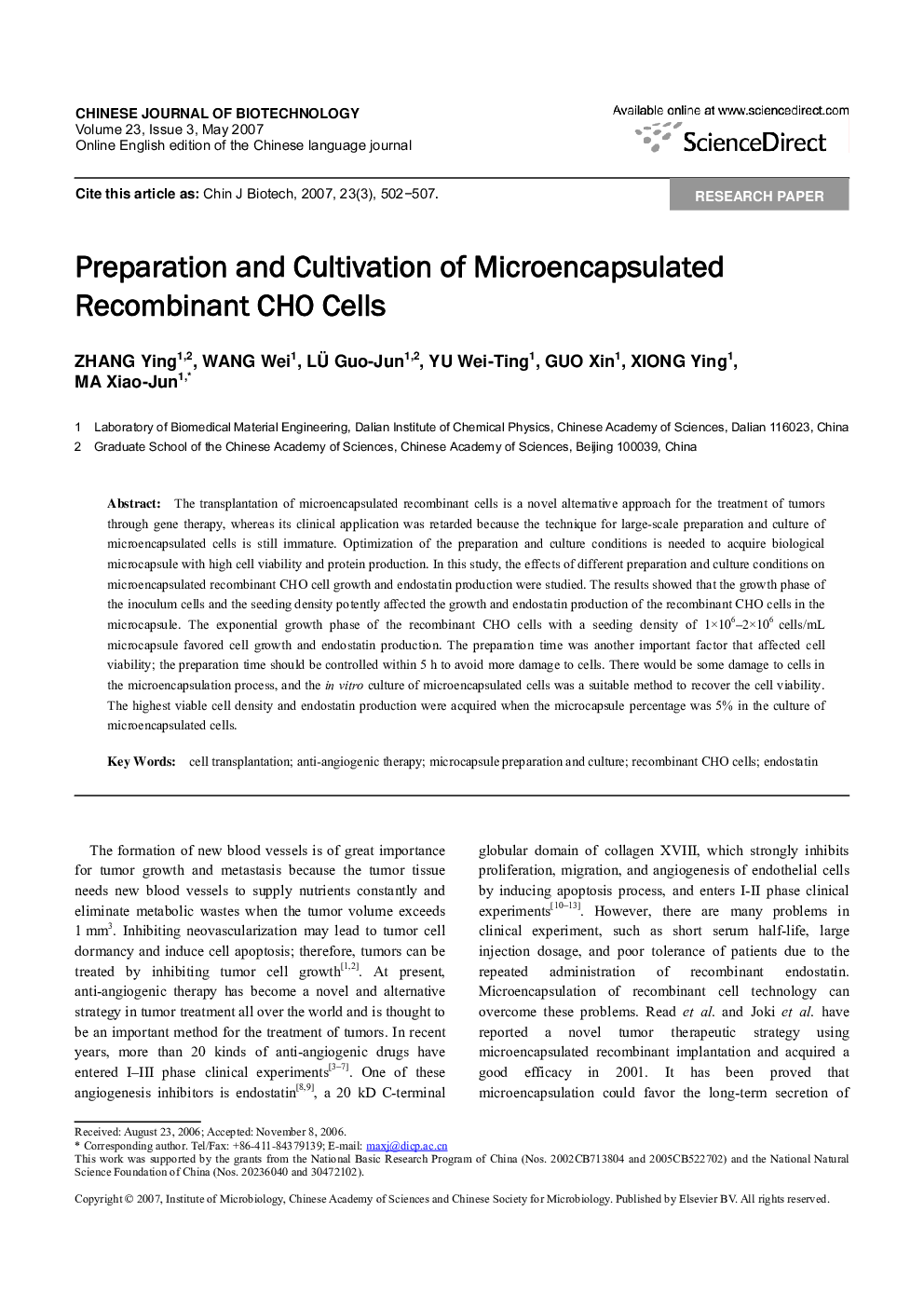| Article ID | Journal | Published Year | Pages | File Type |
|---|---|---|---|---|
| 2079001 | Chinese Journal of Biotechnology | 2007 | 7 Pages |
Abstract
The transplantation of microencapsulated recombinant cells is a novel alternative approach for the treatment of tumors through gene therapy, whereas its clinical application was retarded because the technique for large-scale preparation and culture of microencapsulated cells is still immature. Optimization of the preparation and culture conditions is needed to acquire biological microcapsule with high cell viability and protein production. In this study, the effects of different preparation and culture conditions on microencapsulated recombinant CHO cell growth and endostatin production were studied. The results showed that the growth phase of the inoculum cells and the seeding density potently affected the growth and endostatin production of the recombinant CHO cells in the microcapsule. The exponential growth phase of the recombinant CHO cells with a seeding density of 1Ã106-2Ã106cells/mL microcapsule favored cell growth and endostatin production. The preparation time was another important factor that affected cell viability; the preparation time should be controlled within 5 h to avoid more damage to cells. There would be some damage to cells in the microencapsulation process, and the in vitro culture of microencapsulated cells was a suitable method to recover the cell viability. The highest viable cell density and endostatin production were acquired when the microcapsule percentage was 5% in the culture of microencapsulated cells.
Related Topics
Life Sciences
Biochemistry, Genetics and Molecular Biology
Biotechnology
Authors
Ying ZHANG, Wei WANG, Guo-Jun LÃ, Wei-Ting YU, Xin GUO, Ying XIONG, Xiao-Jun MA,
